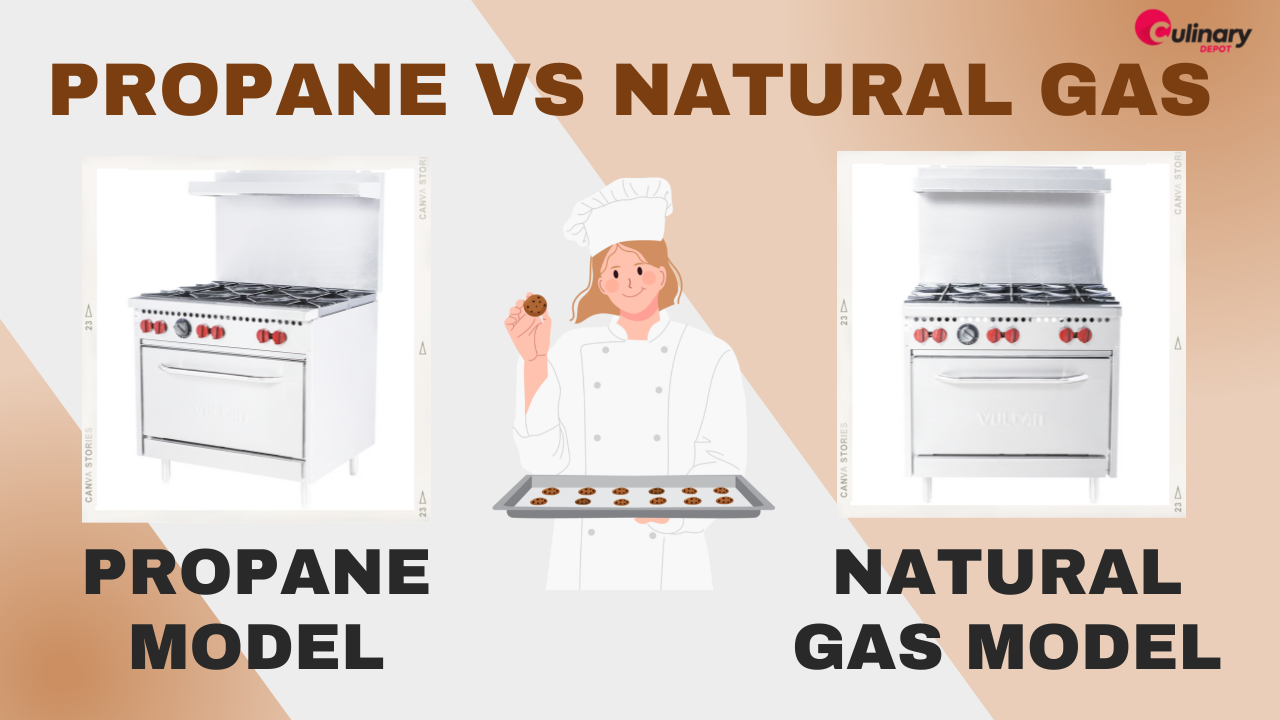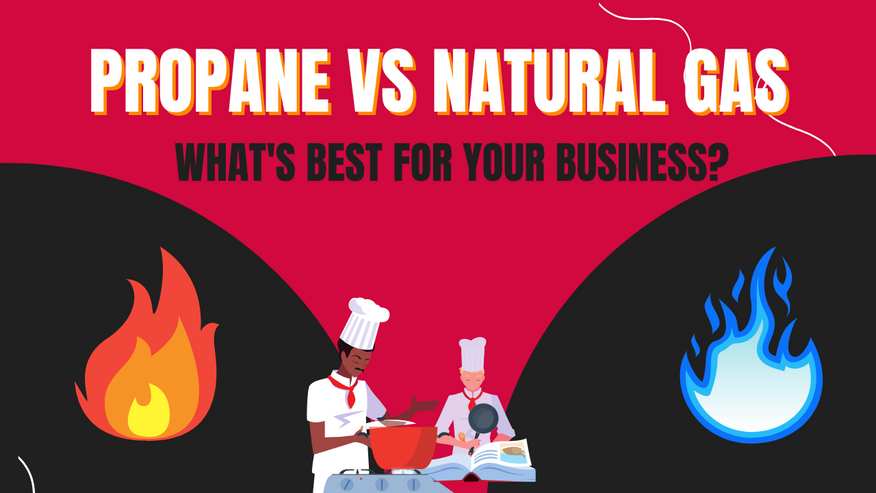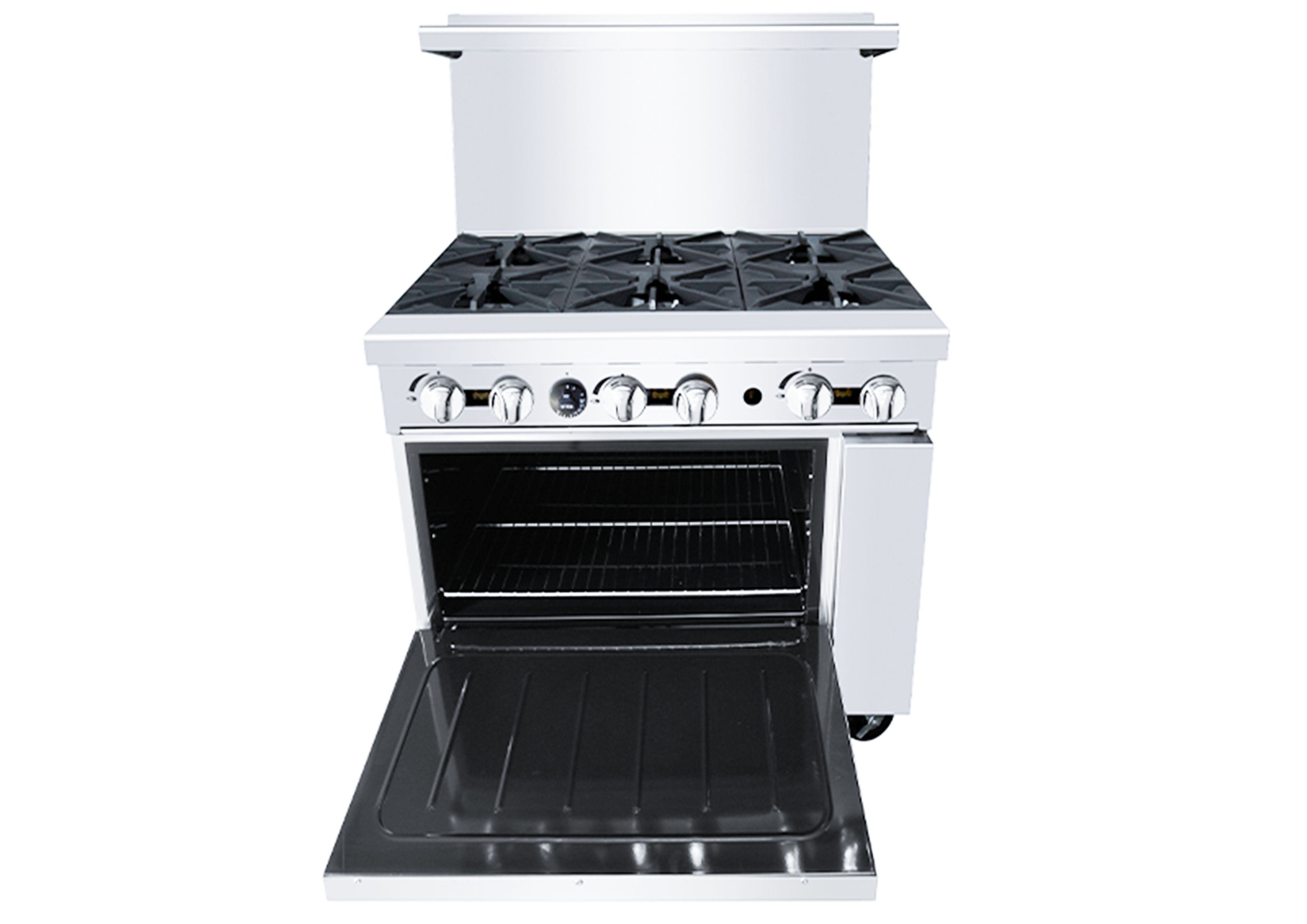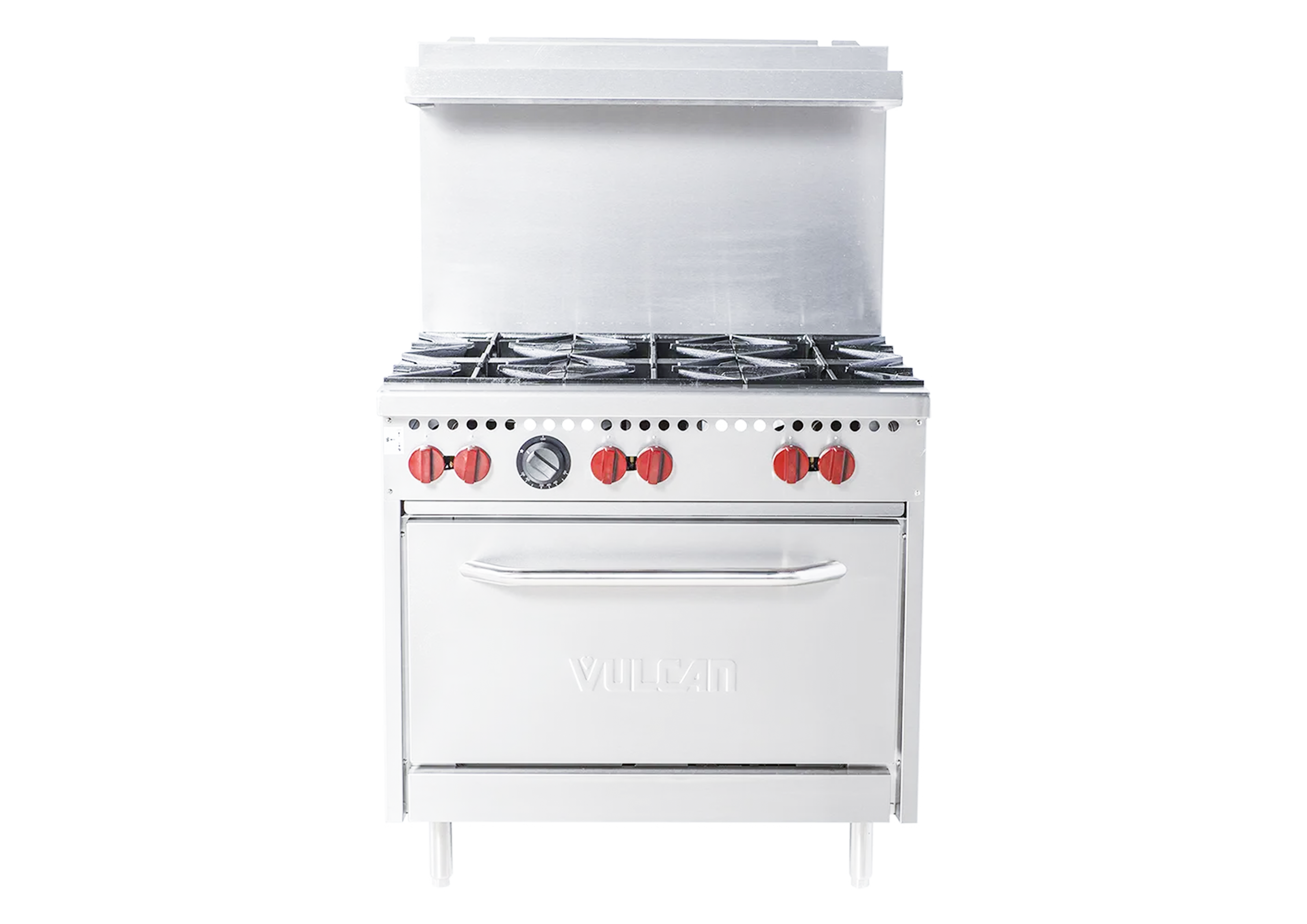Sep 16th 2022 - Monica Cunanan
Propane Vs Natural Gas: Which Is Best for Your Business?
Propane and natural gas are two gas fuels commonly used for cooking and heating. Before we compare propane and natural gas benefits, it's important to understand exactly what each one is and what is best for your commercial kitchen, or even homes.
Propane vs. Natural Gas
Propane and natural gas are both odorless, colorless, and clean-burning fossil fuels. The difference is that propane is more energy-efficient while natural gas is not. Natural gas is lighter than propane and is heavier than air which makes propane leaks more dangerous. Natural gas is delivered via gas pipelines while Propane is delivered in propane tanks.

Check out our BTU Guide to find out which one is best for your commercial equipment
Propane

Propane delivers more BTUs for your dollar than natural gas, so it makes sense to use it when running your kitchen appliances more efficiently. It is usually better for outdoor space, especially if you utilize outdoor grilling or commercial griddles because it's more cost-effective and portable.
It is also considered an off-the-grid heating solution. Propane is portable and can be used even when other systems in your house fail or when you need to relocate.
Natural gas

On the other hand, natural gas is a hands-off approach. You'll never need a scheduled delivery because there will always be natural gas flowing into your house or your kitchen. You won't ever pay for more than what's used with natural gasoline because there isn't any gasoline stored in a tank. It's more of a "Pay as you go" structure.
It makes sense to continue using natural gas if you already have the necessary infrastructure.
The ultimate choice will depend on which one works best for your lifestyle and current setup. Which fuel source would be best for you? What kind of infrastructure would you need to install to obtain either type of fuel? And which fuel source would you prefer to utilize most often?
The Differences
There are some similarities between propane and natural gasses (e.g., they're both clean-burning, colorless, and odorless). However, there are a number of important distinctions between them.
Energy efficiency
When comparing different types of fuel, it is always important to compare how much energy they provide per unit of weight. To compare these two fuels, we will use BTU, which stands for British Thermal Units, and measure thermal energy. Using one cubic foot of natural gasoline produces 1030 BTU. Using one cubic foot of propane produces 2516 BTUs. If we take the same amount of energy from both sources, then we get 2.5x the energy from propane
This Atosa AGR-6B-LP Liquid Propane Restaurant Range also comes in natural gas.
Cost

After talking about cost, let’s discuss the topic of fuel cost and their price differences. It's really easy to compare propane and natural gas prices. First, convert the gallon into cubic meters/feet by dividing the number of gallons by 8.3 (this is how natural gas is usually measured). After doing these calculations, we need to multiply our natural gas price by 2½. Doing so will allow us to purchase the same quantity of electricity at the calculated prices. Of course, this approach only works if we're just interested in the energy costs and not concerned about any other environmental issues
Eco-friendliness
Both natural gas and propane are clean burning gases. Propane is actually one of the cleanest burnings among all types of fuel and natural gas doesn't fall behind that list. Green fuels are those which are environmentally friendly before and after their combustion. Natural gas isn't one of them. And this is true for propane. Leaking propane into the atmosphere doesn't harm anyone. However, the case is different with natural gas. Methane is one of the main components of natural gas, and it’s responsible for most of the greenhouse gas emissions. That’s why it’s really important to try to prevent natural gas leaks and accidents from happening so that they don’t end up entering the atmosphere.
This Vulcan SX36-6B-LP 36" Liquid Propane SX Series Restaurant Range also comes in a Natural Gas model.
Portability
Both natural gas and propane are used for heating and cooking delicious food to be served but they differ in terms of delivery methods. Natural gases are usually transported through pipes to homes. Propane is typically stored at a local tank farm and then pumped into homes using propane tanks. Once natural gas pipelines are connected to homes, gas is available 24 hours a day. Propene, however, is usually kept in a liquid form in tankers. These tanks can be used everywhere, including places where natural gas lines aren't available. One downside is that propane tanks must be filled up periodically, and if they're not available, the house may be unable to use them.
Safety

Both propane and natural gas are odorless and colorless. Manufacturers often use chemical additives like ethyl mercaptans to make gas detectors more effective. One important difference between propane (natural gas) and natural gas is their densities. Natural gas has a lower density than propane. Propane is heavier than air and natural gas is lighter. If there is a leak in a closed space, propane will be found closer to the ground than natural gas.
Natural Gas vs. Propane: What is Best for a Restaurant?
Many gas appliances can be outfitted to utilize propane in place of natural gas. Natural gas is the most common gas used for commercial cookers, but propane can be useful in certain situations. Mobile propane appliances enable operators to be creative in designing kitchens and even where they operate. Food trucks are an excellent example of this. You don't necessarily need to connect your truck to a natural gas utility; however, propane tank stoves are portable and provide strong heat wherever you need it.
Natural gas is usually the best choice if you don't require mobile equipment. Both can cook your food quickly and efficiently but natural gas has a lower operating cost in most instances. You can buy commercial cookware that uses propane instead of gas if you prefer. If you're buying a piece of gas equipment, check the product listing for any indication of whether it comes with a conversion kit.
Unless you're a professional plumber, don't attempt to repair your own plumbing system. Gas fueling is dangerous and should not be attempted without proper training.
About to Open a Food Business?
If you plan to serve healthy, convenient, and popular dishes, you might want to consider investing in good restaurant types of equipment. Here at Culinary Depot, we help you decide which equipment or dishware is suitable. Get in touch with us today!



